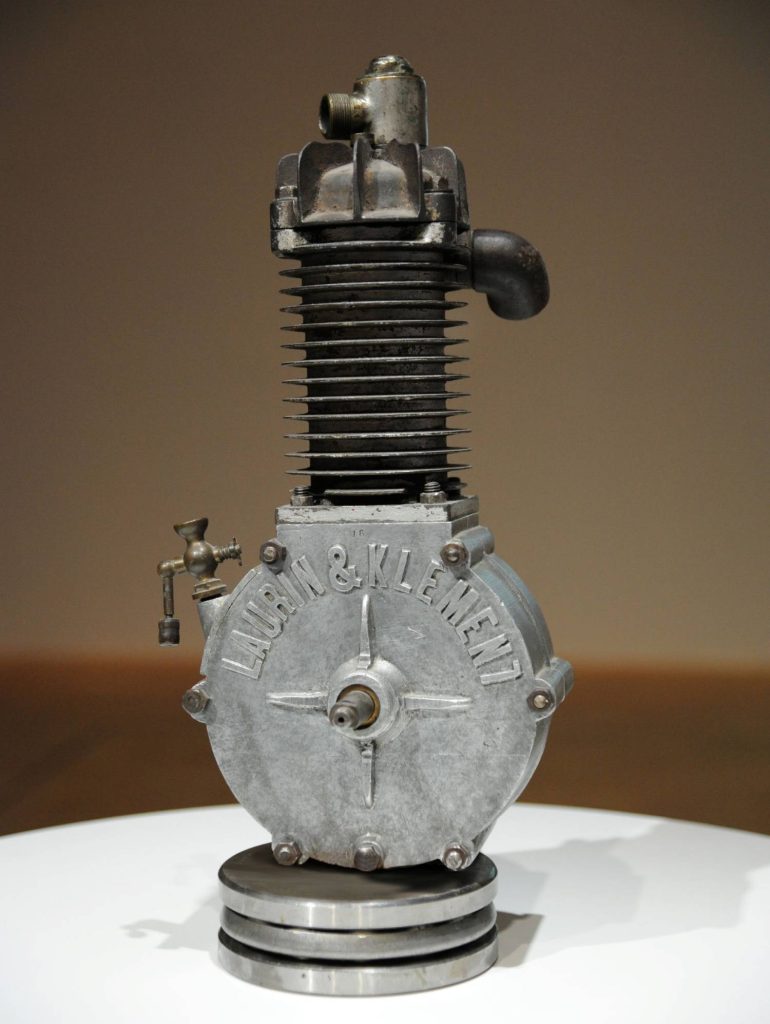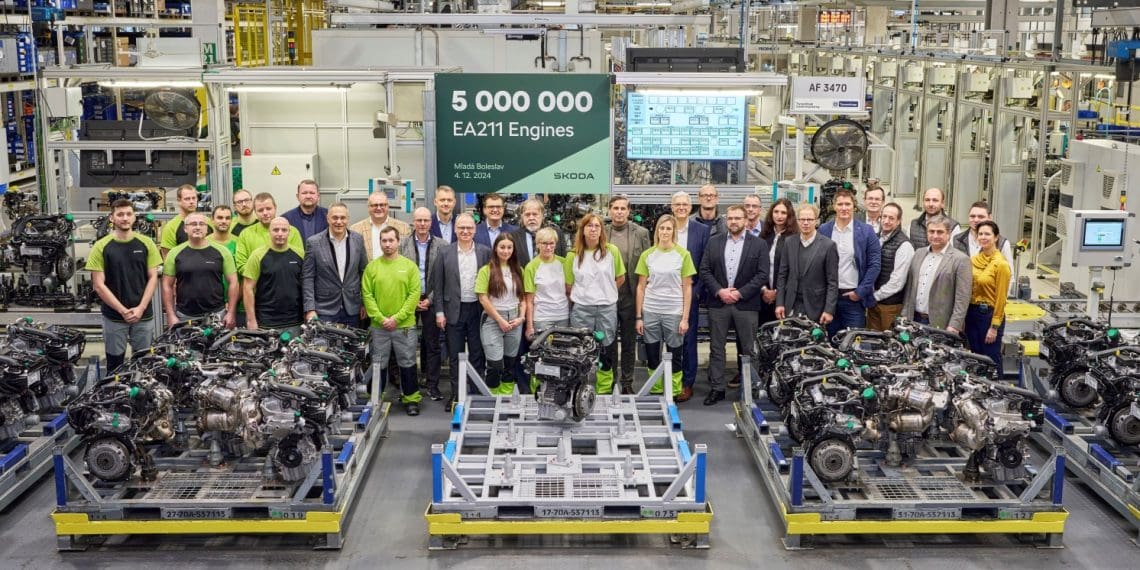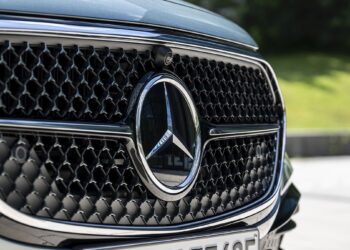Skoda is celebrating 125 years of engine production and development, an age that allows the Mladá Boleslav brand to claim the status of one of the most traditional manufacturers in the world. The company is commemorating this significant milestone with the production of the five millionth engine from the EA 211 series.
Since 1899, over 15 million engines have been produced, including technically innovative units such as the first eight-cylinder inline engine in Central Europe (1907); engines with pressure-cast aluminum blocks in the one-liter class (1964); and the modern MPI and TSI propulsion systems.
The Czech brand’s experience in engine production is further reinforced by the VW Group’s decision to entrust Skoda with the development of gasoline engines up to 1.6 liters for the entire Group.
“Skoda Auto’s tradition in engine development and production began 125 years ago and is demonstrated by the impressive milestone of 15 million engines manufactured to date in Mladá Boleslav. We are celebrating this achievement with the production of the five millionth engine from the EA211 series, used in various Volkswagen Group vehicles in Europe and the dynamic growing market of India. I thank the entire team for this remarkable achievement, which highlights Skoda’s expertise in producing powertrain systems within the Volkswagen Group.”, said Andreas Dick, Member of the Board of Management of Skoda Auto for Production and Logistics.

The history of Skoda in engine production dates back to 1899, four years after the founding of Laurin & Klement in 1895, when the Slavia bicycle range was expanded to include an auxiliary gasoline engine, followed shortly after by the first motorized Slavia Type A.
This motorized vehicle was equipped with an internally designed single-cylinder engine, producing 1.25 hp, marking the beginning of a 125-year tradition of engine production in Mladá Boleslav.
In 1929, under the Skoda brand, large-scale production began in Mladá Boleslav. The engine portfolio of that time included reliable four-cylinder engines with a one-liter capacity, as well as six and eight-cylinder inline units and diesel engines. A particularly significant milestone for the development and production of engines in Mladá Boleslav was the introduction of pressure-cast aluminum engine blocks for the Skoda 1000MB in 1964. This original Czech patent was innovative for its time. Today, the aluminum pressure casting technique continues to be used in the latest engines of the EA 211 series.
In 1991, Skoda joined the VW Group and began supplying engines to other brands within the Group just six years later. The company’s ability to develop powerful, efficient, and technologically advanced engines, combined with high precision in large-scale production, was highlighted in 2012 with the start of production of EA 211 engines, beginning with the then-new 1.0 MPI. Subsequently, Skoda took full responsibility for the development of MPI engines for the entire VW Group and, in 2014, inaugurated a state-of-the-art engine center, which includes advanced testing facilities capable of handling engines with power outputs up to 400 kW.
In March 2023, the VW Group decided to gradually transfer responsibility for the entire EA211 engine series to Škoda. Focusing on efficiency, economy, and compliance with new emission standards through innovative technical solutions, the company is now developing combustion engines for 50 model ranges across seven brands of the Volkswagen Group. These include the 1.0 MPI, 1.6 MPI, 1.0 TSI, 1.4 TSI (PHEV), and 1.5 TSI engines.
Recently, the Czech car manufacturer celebrated the production of its one millionth battery system.










